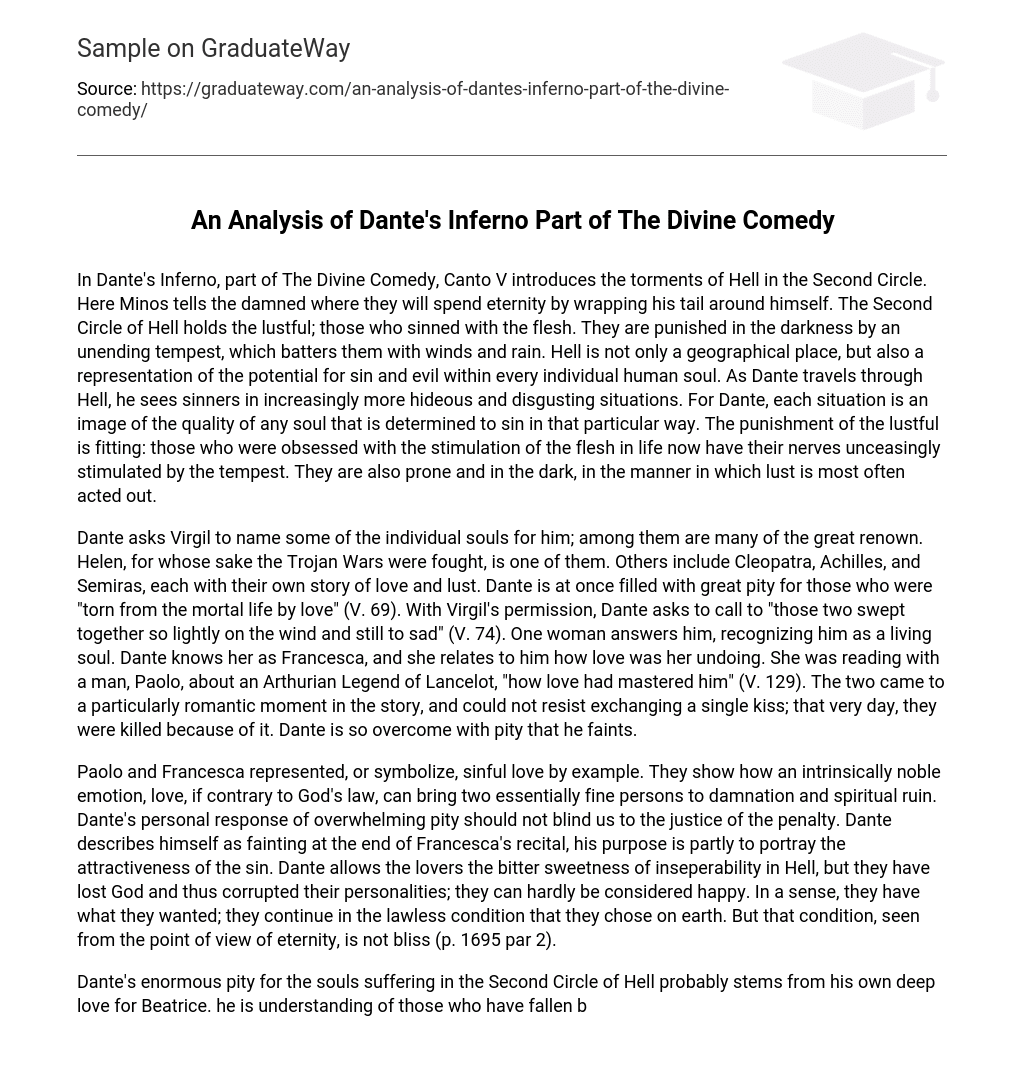In Dante’s Inferno, part of The Divine Comedy, Canto V introduces the torments of Hell in the Second Circle. Here, Minos, with his tail wrapped around himself, tells the damned where they will spend eternity. The Second Circle of Hell is inhabited by the lustful, those who sinned with their flesh. They endure punishment in the darkness, enduring an unending tempest of winds and rain. Hell is not just a physical place, but also a representation of the potential for sin and evil within every individual human soul. As Dante progresses through Hell, he encounters sinners in increasingly grotesque and repulsive situations. To Dante, each situation reflects the essence of a soul that is determined to commit that particular sin. The punishment for the lustful is fitting: they are constantly stimulated by the tempest, echoing their insatiable desires in life. They also remain prone and engulfed in darkness, mirroring the typical circumstances in which lust is typically acted upon.
Dante asks Virgil to identify some of the individual souls for him. Among them are many renowned figures such as Helen, for whom the Trojan Wars were fought, Cleopatra, Achilles, and Semiras. Each soul has their own tale of love and lust. Dante feels immense pity for those who were taken from life due to love. With Virgil’s permission, Dante requests to speak with “those two who were whisked away by the wind and are still filled with sorrow.” A woman answers him, recognizing him as a living soul. Dante recalls her as Francesca, who explains how love led to her downfall. She and a man named Paolo were reading about Lancelot and his love story when they couldn’t resist sharing a single kiss. That very day, they were killed because of their actions. Dante is so overwhelmed with pity that he faints.
Paolo and Francesca serve as a representation or symbol for sinful love. They exemplify how love, despite being an inherently noble emotion, can lead two good individuals to damnation and spiritual ruin if it goes against God’s law. While Dante’s overwhelming pity for them should not make us overlook the justice of their punishment, he intentionally portrays the attractiveness of their sin by fainting at the end of Francesca’s story. The lovers are allowed the bittersweetness of being inseparable in Hell, but they have lost God and consequently corrupted their identities, making it difficult to consider them truly happy. In a way, they have achieved what they desired – to remain in the lawless state they chose in life. However, from an eternal perspective, this condition is not bliss (p. 1695 par 2).
The reason for Dante’s great compassion towards the suffering souls in the Second Circle of Hell likely originates from his profound affection for Beatrice. He empathizes with those who have succumbed to the perils of love. This empathy even influences his decision to be relatively merciful in assigning certain characters to this Circle. For instance, Dido took her own life due to her unrequited love for Aeneas. Typically, individuals who commit suicide end up much deeper in Hell, but Dante opts to position Dido based on her “lesser” transgression—excessive love.





